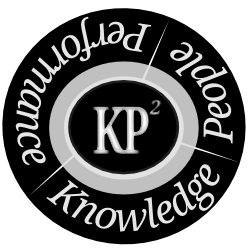In the fall of 2012, I wrote about my experiences at the knowledgecamp, a barcamp for all those interested in knowledge management. The barcamp participants had a strong interest in the use of social media for knowledge management and several sessions were dedicated to the topic. In one of them, I presented some ideas of an ongoing research project. It was about the impact of social media on knowledge creation. This project has now come to an end. Me and my co-authors, Gabriele Vollmar and Heinz-Theo Wagner, managed to get the results published in a special issue on social media in the Journal of Enterprise Information Management. Here is a short summary: Continue reading New article: Impact of information technology on knowledge creation
Tag: affordances
A Barcamp Experience: The KnowledgeCamp in Karlsruhe
On October 12 and 13, 2012, the KnowledgeCamp took place in Karlsruhe, Germany. It was the first barcamp, or unconference, I attended. For those of you who are not familiar with this type of event, here is the the corresponding Wikipedia article. On one hand, I went because I was curious to see how such a barcamp works. On the other, I wanted to offer a session in order to present and discuss a paper a colleague and myself have been working on recently.
My general impression of the barcamp was very positive. One of the greatest features is the selection of the sessions by the participants themselves. This procedure guarantees that the content offerered is relevant to the people attending the barcamp. While I was worried that my own session may not be suitable for the crowd present, I was pleased to see a number of hands go up once I introduced the topic. Hosts are further free to choose how they conduct their sessions. Continue reading A Barcamp Experience: The KnowledgeCamp in Karlsruhe
The AoM Conference 2012 – Impresssions and Reflections
The first couple of days at the Academy of Management Conference went by quickly and it has been very interesting. I have had the chance to see a number of people present whose ideas I have intensively dealt with over the past year or two. I spent most of my time at the OCIS PhD Consortium and the Professional Development Workshops listed below.
Here is a quick wrap-up of the events which I participated in and what has been most interesting to me about them.
OCIS PhD Consortium
The consortium was extremely well organized and thought through so kudos to Youngjin Yoo for organizing it. I usually pay much attention to the format of these events. In this case, I really liked the mix of student involvement and feedback/advice from senior faculty. We started the workshop with roundtable discussions of our own proposals. My group mentor was Sirkka Jarvenpaa. Due to the small size of the groups, all participants had actually read the papers, were able to give detailed, quality feedback, and ask very targeted questions. The morning roundtable session was followed by a number of stimulating talks by senior scholars, such as Michael Barrett and Robert Fichman. The keynote, and my personal favorite, was the talk by Noshir Contractor on building strong academic networks as a form of career development. Last but least, we were asked to present posters of our research at a reception of the OCIS division. Offering food and drinks certainly helped to bring a lot of spectators to the exhibition room and gave us the chance to present our ideas to a critical audience of a number of potential reviewers and journal editors.
PDW on Social Media
The Social Media PDW line-up of speakers read much like a ‘Who’s who’ in research on social media and online communities. I perceived the presence of so many renowned scholars as slightly intimidating, however the discussions at the PDW were colleagial and even the most senior scholars were very personable. Looking at the structure and process of the PDW, I liked the idea of having several panelists present only 2-3 minutes in order to raise key questions researchers in the field are facing. The most interesting contribution, to my mind, was Steven Borgatti’s and Jerry Kane’s intent to blend social media research with social network research using danah boyd’s affordances.
PDW on Sociomateriality
One of the talks I was particularly looking forward to was the one by Wanda Orlikowski who is an advocate of an approach called sociomateriality. Yet, most striking to me was not the methodological discussion surrounding this approach, but instead the research design used by Wanda in one of her recent studies called ‘Getting the truth’: exploring the material grounds of institutional dynamics in social media. In her study, Wanda contrasted how travel ratings on TripAdvisor, an online travel rating site, and a standard British travel guide by the AA are constructed, the former encompassing a mass of user-generated content whereas the latter is produced by paid experts. One the questions repeatedly posed about research concerning online communities is ‘What is different about online communities compared to offline ones?’. Wanda’s example about how these ratings come about was a superb example of where to look for these differences.

